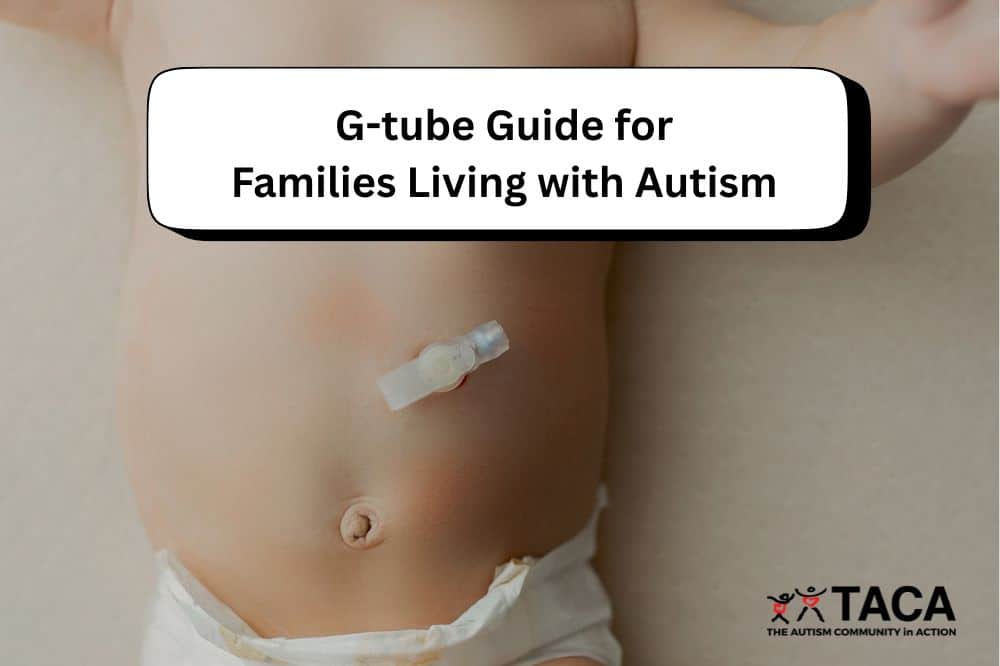College and Post-Secondary Education

All contents of this resource were created for informational purposes only and are not intended to be a substitute for professional advice, diagnosis, or treatment. Always seek the advice of your physician, therapist, or other qualified health providers with any questions or concerns you may have.
Choosing to attend college and finding the best college can be hard for everyone. For students with autism, it’s important to consider many things about a college aside from academics. Independent living skills, self-advocacy skills, and available supports at a college all need to be carefully considered. In this article, we will discuss:
- Types of Colleges and Post-Secondary Education
- Skills for Success
- Disability Supports in Higher Education
- Paying for Higher Education
- Housing Options

Types of Colleges and Post-Secondary Programs
When it comes to selecting colleges and job training, there are several options to choose from. Consult with Vocational Rehabilitation in your state to learn more about education and job training.
- Traditional Four-Year Colleges
- These institutions offer a wide range of academic programs and extracurricular services.
- Students can pursue undergraduate degrees in various fields of study.
- Generally, these colleges can range from small with just a few hundred students to large schools with tens of thousands of students.
- More and more four-year colleges offer neurodiversity friendly programs. Check out a list of programs here.
- Community Colleges
- Typically offer two-year associate degree programs and vocational training programs.Also, students have the option to transfer to a four-year college if desired.
- Additionally, attending a smaller community college allows students to acquire practical skills before transferring to a larger institution.
- Vocational and Technical Schools
- Specifically, these schools specialize in skill development and training for specific careers that do not require a four-year degree.
- Examples include culinary arts, automotive technology, cosmetology, electrician, plumbing, dental assistant, welding, and computer information technology.
- Post-Secondary Programs
- Presently, many colleges and universities offer a type of post-secondary program for students with disabilities that are not on a degree path.
- These programs offer a specialized on-campus experience in a more structured and supportive environment that helps young adults with disabilities make a successful transition into adulthood.
- Students participate in vocational training, independent living skills, self-advocacy classes, internships, and overall adult skill development.
- Think College maintains a database of post-secondary programs across the United States.

Skills for Success
Transitioning from high school to post-secondary education can be a difficult change. Autistic students have additional challenges to address when preparing for and participating in higher education. Research shows that college students with autism are more likely to experience burnout, mental health issues and are more likely to drop out of higher education than their non-autistic peers. Therefore, it is the parent or caregiver’s responsibility to ensure that their loved one is ready for the additional responsibilities of higher education, not just the academic expectations.
Transition Planning
- To begin with, work with your school to create a strong transition plan to prepare your child for post-secondary education.
- Learn more for TACA’s article on IEP Transition Planning
- Above all, work with your child’s IEP team on developing goals related to social skills, executive functioning, emotional regulation, self-advocacy and independent living skills.
- There should be a clear link between IEP goals and post-high school goals and aspirations.
- Importantly, transition plans should include goals related to self-determination (SD), or the ability to control your own life as well as identifying and achieving your goals.
- Self-determination includes:
- Goal setting
- Self-awareness
- Choice-making
- Self-advocacy
- Problem-solving
- Self-monitoring
- Decision making
Social Communication
- Social communication is how someone uses their verbal and nonverbal communication skills to interact with others.
- Individuals with autism often struggle with social communication.
- However, these skills are needed for navigating social situations, including:
- Making friends
- Networking with other students or adults
- Interacting with professors or other university staff
- Self-advocacy
- In order to prepare your child, start teaching social skills at an early age.
- Enroll in social skills classesUse video modeling or other visuals to teach social communication skillsRole-play situations
- Practice! Take your child into the community and have them practice social skills and advocacy in a safe environment with adult support.
Executive Functioning
- Executive functioning skills are the tools a person uses to get organized and accomplish tasks. In college and job training programs, it is important to have strong executive functioning skills for success.
- For example, here is a list of skills to work with your child on before entering college.
- Time management
- Organization
- Goal setting
- Task initiation
- Focus and attention
- Working memory
- Self-monitoring
- Flexibility
- Problem-solving
- Read TACA’s article about executive functioning skills to learn more.
Emotional Self-Regulation
Emotional self-regulation is a super important life skill! It means being able to control your emotions and reactions, even when in stressful or upsetting situations.
- Research shows that people with autism have higher rates of depression, anxiety, and other mental health comorbidities.
- Individuals with healthy emotional self-regulation can:
- Recognize when they start to feel emotional.
- Think about what might happen if they behave or react in a certain way and make decisions about their response based on that reflection.
- Use coping strategies to continue with a task, even if they feel upset or stressed.
- Ask for help when needed.
- Again, it is important to start teaching these skills at a young age. Given that these skills are difficult for anyone , it can take years to learn.
- The following are some strategies for teaching emotional regulation and coping skills.
- Use an emotions chart to help your child identify how they are feeling.
- Help your child assign emotions to different situations.
- Together, work with your child to identify sensory and emotional triggers.
- Focus on teaching coping strategies for various triggers and situations.
- Walk away
- Deep breathing
- Ask for help
- Request a break
- Write down your feelings
- Finally, teach self-awareness and fade the adult support.
Disability Supports in Higher Education
- Colleges and universities are required to follow the guidelines of the Americans with Disabilities Act (ADA).
- However, the Individuals with Disabilities Education Act (IDEA) does not apply to higher education.
- To clarify, the accommodations and modifications your child received in public high school do NOT automatically transfer over to college.
- To learn more about what accommodations are available and how the school supports individuals with disabilities, check with the school’s disability services or support department when touring colleges.
- Academic accommodations may include extended time, note-taking assistance, or assistive technology.
- Counseling and mentoring may include counseling services, social skills training, or mentor programs.
- Accessibility resources include physical accommodations for classrooms, dormitories, and transportation options.
- Importantly, you must disclose your diagnosis to the appropriate higher education personnel in order to receive ADA accommodations.
- This is private information that will only be shared on a “need-to-know” basis. Other students will not be told medical information.
- Remember, when students attend a four-year college, community college, or trade school, parents do not have the right to access information about their child.
- This includes talking with university staff, such as professors, about workload, grades, disability services, and mental health issues.
- Alternatively, if both the parent and child agree, families may be able to draft a legal document called an Assignment of Academic Rights so that parents have access to educational information.
- Speak with your school disability support office on specifically what kind of legal documentation they accept that gives someone other than the student access to educational information.

Paying for College
Higher education expenses are constantly increasing and often create a heavy financial burden on people. Moreover, families should weigh the cost of higher education against their child’s goals, the skills they have to be successful, and the likelihood of employment after graduation.
- To start, research scholarships and grants that are available.
- In fact, there may be scholarships specifically targeting students with autism.
- Contact disability advocacy organizations and the colleges themselves to find out what is offered.
- Next step, learn about financial aid opportunities.
- Autistic students may be eligible for federal or state financial aid programs.
- Complete the Free Application for Federal Student Aid (FAFSA) to determine eligibility.
- Finally, some families have college savings accounts.
- 529 college savings plans are state-specific plans that let you save money to pay for education expenses. There is no federal or state income tax imposed on these savings accounts.

Housing Options
Considering suitable housing arrangements is crucial for students with autism.
On Campus
- On-campus dormitories are a popular choice for housing, especially during freshman year. Many colleges and universities require that freshmen live on campus.
- Pros
- On campus for easy access to classes and cafeteria.
- Roommate matching services may be available.
- It may be easier to meet new people and make friends.
- Typically there is an assigned Residential Assistant (RA) that oversees the students that live on a hallway or dorm floor.
- Often, there is onsite laundry, study rooms, and common areas for socialization.
- Cafeterias allows for easy access to meals without cooking. Ask about allergy-friendly options if needed.
- The student is only responsible for keeping their space clean.
- Some colleges have disability-specific housing options.
- Cons
- Dormitories may be old with environmental issues such as mold.
- Typically, meal prep appliances and space is extremely limited. Most dorm rooms have a mini-fridge and microwave.
- Dorms can get loud or hectic with so many people living in close quarters.
- Limited privacy
- Pros
Off Campus
- Off-campus housing options, such as living in an apartment, may be a good fit. Check with your school on housing requirements.
- Pros
- More flexibility in living arrangements.
- Larger space to live in.
- Greater independence and control over your living space.
- Can cook your own meals and have more storage space.
- Pros
- Cons
- No college-directed support services.
- May require transportation to campus.
- Sometimes more expensive than living in dorms.
- Student is responsible for furniture, utility costs, and renters insurance.
- The student is responsible for cleaning their apartment.
Living at Home
- Living at home with family is an option if you are attending a college or post-secondary program that is nearby.
- Again, check with your school on housing requirements.
- Pros
- Staying in a familiar space lessens the transition.
- Student can focus on academics and school-related social situations without the added responsibility of living independently.
- Food and medical issues are more likely to be monitored by parents.
- No additional costs.
- Cons
- Social interaction is limited outside of class.
- The student does not gain independent living experience.
- Most likely, the student will need transportation to campus.
Conclusion
Choosing the right college and preparing for higher education can be challenging for everyone, including individuals with autism. It’s crucial to consider factors beyond academics, such as independent living skills, self-advocacy skills, and available supports at a college. Remember, each individual’s path is unique, and finding the right college fit involves careful consideration of their strengths, aspirations, and the available resources that will contribute to their overall success in higher education.
Additional Resources
Organization for Autism Research (OAR): College Central




